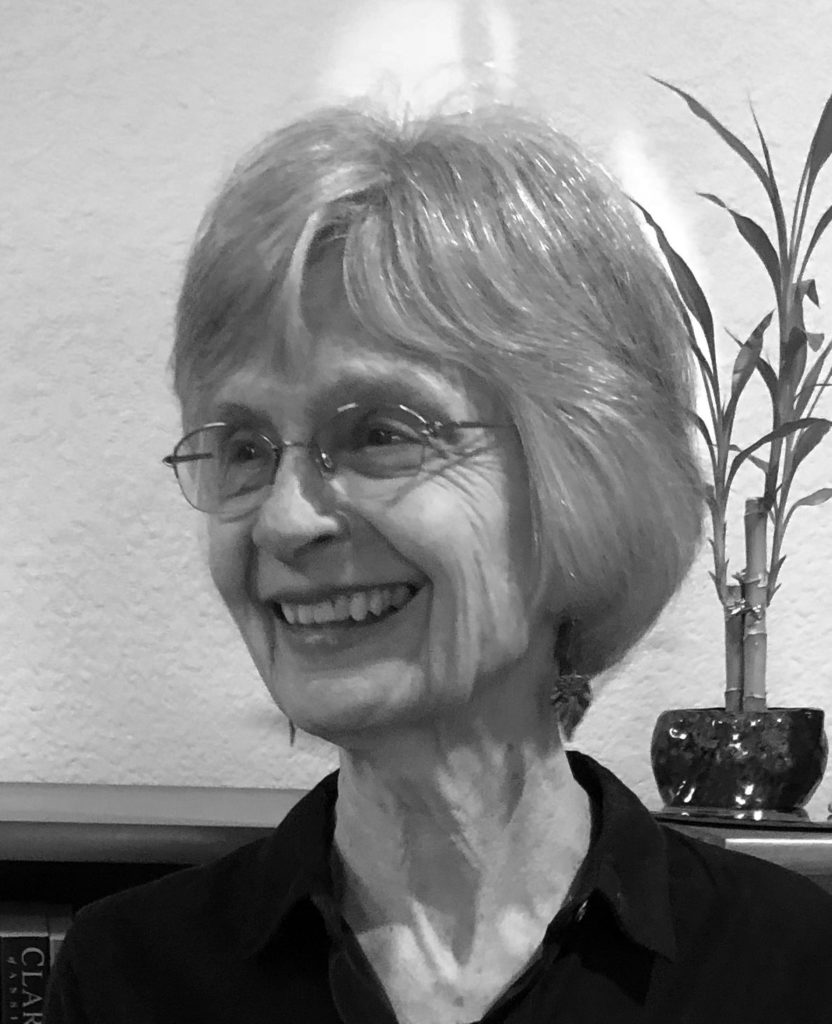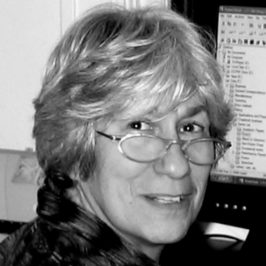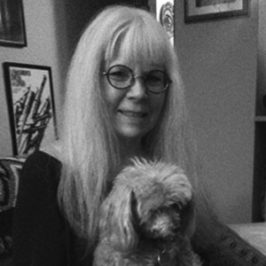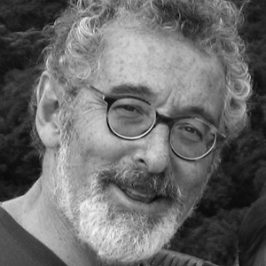

Two form poems, by Antoinette Kennedy and Lynn Dizard.
6 minutes
TRANSCRIPT
One of Passager’s all time favorite people, Ebby Malmgren, said this about writing in poetic forms: “Writing in forms is like wearing a girdle!”
This episode of Burning Bright features two poems. You may hear the details of the form in the reading, but if you can’t, you can see the poem in its written form by clicking on “transcript” directly under this podcast’s audio file on the Passager website.
A sestina is a 39 line poem with six stanzas of six lines and a final triplet. All stanzas have the same six words at the line-ends in six different sequences that follow a fixed pattern, and all six words appear in the closing three-line envoi.
Antoinette Kennedy lived for two years in a low-income hotel with three other nuns and 39 men, many of whom suffered from addiction, mental illness, and poverty. Out of that experience came her poem “Sestina for a Soldier.”
Bill sits in a cramped downtown room and dreams
of too many years walking, wearing boots
on old terrain that began on a road
near a shack where a boy paced in a room
and timed the cruel distance from home
to freedom. Tonight, in the dark, huge hands
trace the face of his wrist watch (a prize), hands
that glow green. Sometimes he wakes from the dreams
of winning a garden, hearth, and a home
with a Lincoln shiny as black boots;
the same hopes and pluck and good luck, with room
to spare, pushing him, that boy, down the road
far out of Georgia, away from the road
with signs marked “Colored Only,” and dark hands
shov’ling dung. Army’s segregated rooms
for “boy” left him flickering dreams
of Silver Star, khakis pressed, combat boots
laced high, gun blazing, and back again home.
In ’42, he thought he’d found a home
but saw no combat, just shoveled shale roads.
Enemy fire scarred him from waist to boots
and forced him to settle for shrunken dreams
of how to serve his country with dark hands:
wash, fold clothes in the army’s laundry room.
Wartime desegregated other rooms
or wards and bandaged wounds and sent them home
to nowhere. Not once did he nurture dreams
of heading back to Georgia’s gutted road.
In Korea, the Army kept his hands
warm sorting overshoes for combat boots.
Service done, he bought a pair of new boots –
glossy ones – and walked up stairs to a room
for one – too cold, too small. His two huge hands
shined someone else’s shoes, cleaned docks, called home
a corner café, Sisters of the Road.
Every day he ate cornbread worth his dreams.
Bill dreams – in black and white – of rutted roads
smoothed by Time’s hand, a fire-lit spacious room,
and old boots, standing, finally at home.
Antoinette Kennedy
“Sestina for a Soldier” by Antoinette Kennedy from Issue 69. Antoinette said she has a 12 year old ShihTzu muse whom she raised on Mozart, Tennyson, Yeats, and Emmylou Harris.
A terzanelle is is nineteen lines long, with five triplets and a concluding quatrain. The middle line of each triplet stanza is repeated as the third line of the following stanza, and the first and third lines of the initial stanza are the second and final lines of the concluding quatrain. Got it? Here’s Lynn Wood Dizard’s terzanelle “Wireless World” from Passager Issue 61.
Press the remote and the day begins
with traffic and weather and news of the day.
Talking heads talk of losses and wins.
Syrians surge and candidates have their say.
Everyone everywhere is somehow connected
with traffic and weather and news of the day.
Babies are born and taxes, collected.
Chatterers chatter and recharge their phones.
Everyone everywhere is somehow connected.
No more attached than anonymous drones,
sinless and guilt-free, untouched by caresses,
chatterers chatter and recharge their phones.
At the end of the day, what can impress us
in a wireless world, free of passion and pain,
sinless and guilt-free, untouched by caresses?
Only more and more, our constant refrain,
in a wireless world, free of passion and pain.
Press the remote and the day begins.
Talking heads talk of losses and wins.
“Wireless World,” Lynn Dizard. Lynn said that her husband, children, and grandchildren all have expertise in the worlds of information and journalism.
As I said earlier, if you couldn’t hear each poetic form as I read it, you can see the poem in its written form by clicking on “transcript” directly under this podcast’s audio file on the Passager website.
To subscribe to or learn more about Passager and its commitment to writers over 50,
go to passagerbooks.com. You can download Burning Bright from Spotify, Apple and Google Podcasts, and various other podcast apps.
For Kendra, Mary, Christine, Rosanne, and the rest of the Passager staff, I’m Jon Shorr.






